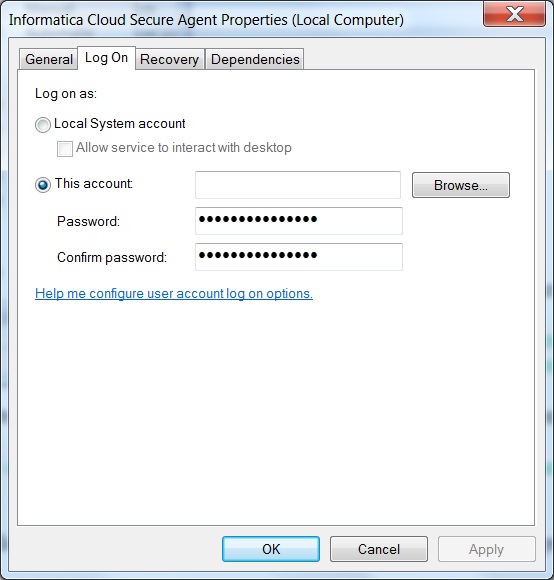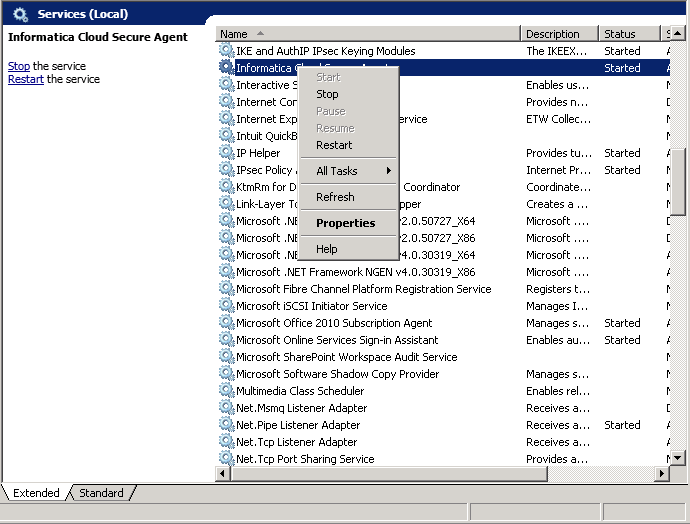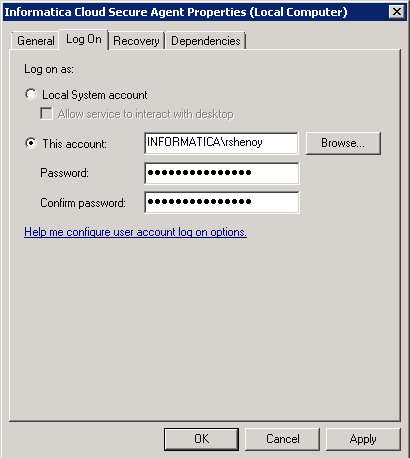- - You do not require any set up on the Sharepoint.
- - You must access Sharepoint Odata REST URL.
Note: For relevant documentation for Sharepoint 2013, see http://msdn.microsoft.com/en-us/library/office/fp142380(v=office.15).aspx
- - The Odata REST URL needs to be accessible from the machine where the Secure Agent is installed.
- - The connector uses HTTP based authentication from the connection screen by default.
- - It supports Windows based authentication directly.
- - You can start the service by using configured user account of SharePoint Windows.

If the Sharepoint server is configured to use Windows authentication and User identity in Active Directory Domain Services (AD DS), then you must start the Informatica Cloud Secure Agent with Windows/AD user account. The same account which has relevant access to Sharepoint server.
Perform the following steps to restart the agent:
- 1. Select Services program.
- 2. In Services, search for Informatica Cloud Secure Agent.
- 3. Right click Informatica Cloud Secure Agent and select Properties.
- 4. Select Log On tab.
- 5. Select This account.
- 6. Specify account name and Password as show in the previous figure.
- 7. Click OK.


Informatica Cloud Secure Agent Properties page appears.

Note: In case of Windows authentication, the username and password entered as connection parameters, have no impact on the authentication of connection. As these parameters are mandatory, you can enter dummy values.
- - The mapping fields are not listed as SharePoint fields are dynamic and customizable.
- - All fields such as standard or custom, exposed by the SharePoint Odata REST URI are supported for mapping.